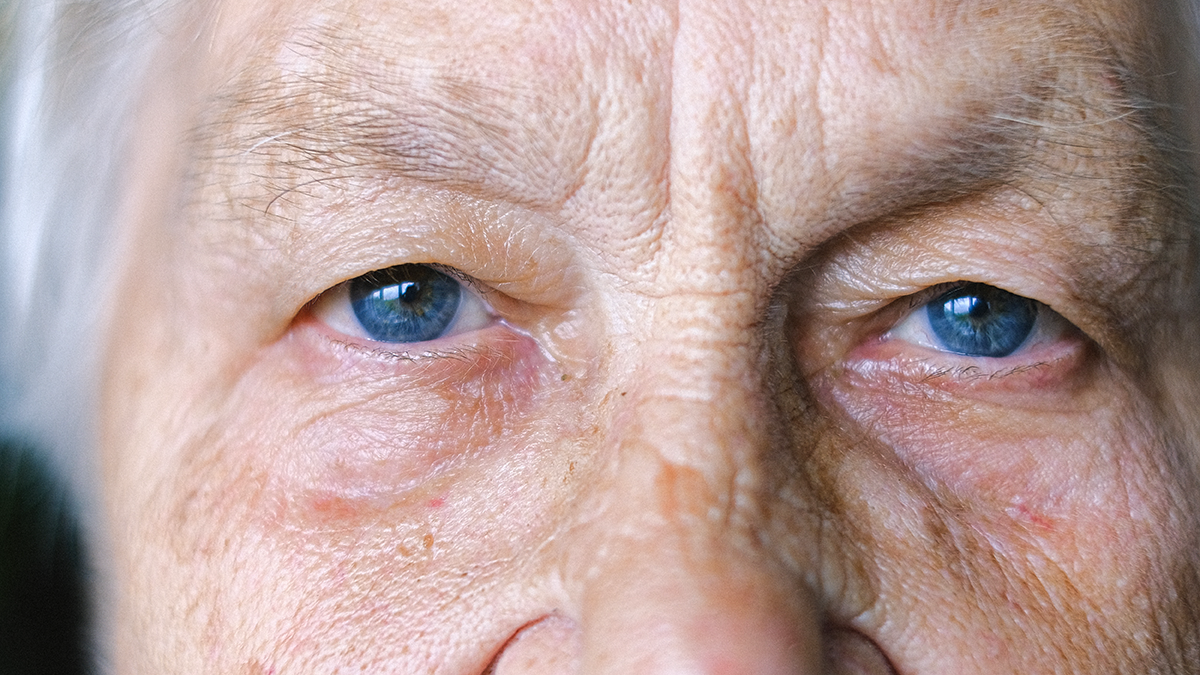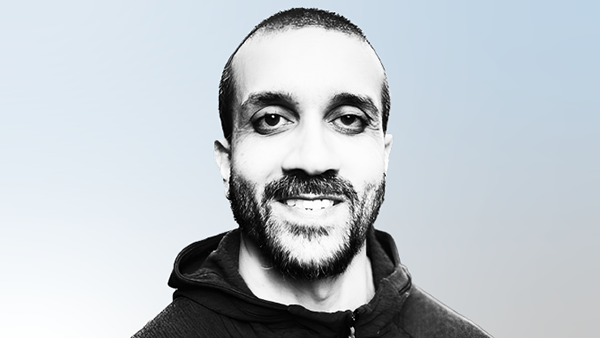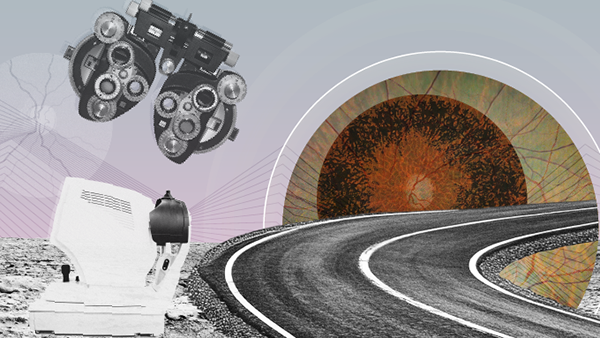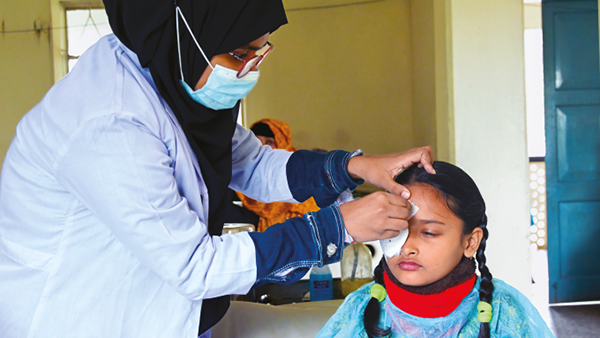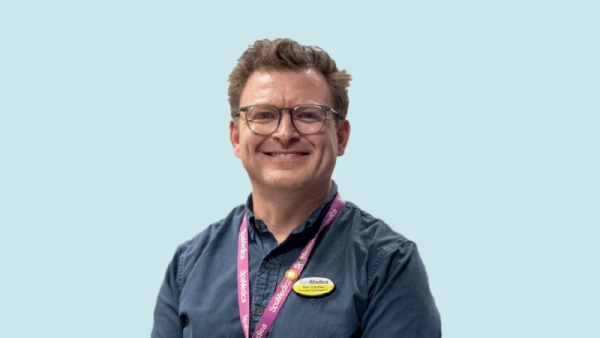You are viewing 1 of your 3 articles before login/registration is required
Preventing Avoidable Sight Loss
How a new – and free – service aims to save the time of optometrists, while educating AMD patients
Age-related macular degeneration (AMD) is the most prevalent long-term eye condition in the UK. The Royal National Institute of Blind People (RNIB) estimates that there are more than 4 million people living with signs of AMD. Of those, 700,000 are experiencing sight loss – the rest are at risk of the same fate. Worse still? This number is set to grow, with RNIB predicting there’ll be a 25 percent increase in the number of people living with late-stage AMD by 2032.
As a progressive disease, there is no cure for any form of AMD, and no treatment at all for dry AMD. However, recognizing symptoms, gaining an early diagnosis, and getting professional advice about lifestyle changes have helped patients slow down AMD’s impact on their sight.
In an effort to help prevent avoidable sight loss, OcuPlan – the UK’s largest network of opticians and ophthalmologists – has launched a free Sight Support Service, which aims to not only inform AMD patients about what they can do to help preserve their sight, but also help optometrists save time when diagnosing patients. In addition, the company is partnering with Topcon Healthcare to run a series of CPD events for optometrists and dispensing opticians on the importance of early AMD diagnosis – and how to communicate with AMD patients.
Patient and practitioner frustration
Having recently partnered with the Macular Society, attended various support groups, and conducted patient surveys, OcuPlan has learned that the diagnosis experience is largely inconsistent and that the majority of dry AMD patients aren’t aware of the things they could do to help slow the progression of their condition.
A recent survey of macular disease patients found that 55 percent had experienced some symptoms of sight loss before they were officially diagnosed. This is despite the fact that, in the majority of cases, it is possible to diagnose AMD before any symptoms of sight loss occur.
When patients first learn they have AMD, the risk of losing sight can be frightening. The potential loss of independence and ability to drive – and the thought of being a burden on their loved ones – can be overwhelming. At this time, patients often struggle to absorb and process new information – but that’s also the time when it is most important that they do so.
Optometrists are often the first professionals to notice early signs of AMD. But there are some difficulties around this early diagnosis that restrict their patient care options. Without a definitive treatment option or support service for their patients in the early stages of AMD, eye care professionals can be left feeling frustrated. And a recent OcuPlan survey found that 75 percent of eye care professionals felt they didn’t have enough time with AMD patients to tell them everything they needed to know.
The right advice
To help the millions of people living with this condition, receiving an early diagnosis and being given the right advice – at the right time – is key to slowing progression. Consultant ophthalmologist and founder of OcuPlan Dan Calladine says, “Though there is no treatment, there are still things patients can be doing to help prevent AMD from progressing. The earlier they start to make lifestyle changes, such as stopping smoking, improving their diet, taking eye supplements, and regularly using an AMSLER grid to test for wet AMD, the better chance they have in preventing sight loss.”
He adds, “All optometrists are skilled at spotting the early signs of age-related changes in the retina on fundoscopy but, historically, it was more difficult to see the progression. With OCT technology, we’re now able to see the smallest of changes in conditions. I always encourage my optometrist network to speak to their patients about AMD as soon as they see a slight change on their OCT scan.”
The Sight Support Service aims to help optometrists by alleviating clinical risk of miscommunication and reducing time pressures by providing all relevant information and ongoing support. It includes an “Ask a consultant” service, a rapid advice line, and plans to offer discounted AREDS2 supplements.
“We know there are a huge number of people living with AMD and, without a formal diagnosis process, there will always be inconsistencies,” explains Calladine. “But if all patients can be made aware of their eye health and the risk factors, it will really help.”
Learn more about OcuPlan’s Free Sight Support Service here.
The New Optometrist Newsletter
Permission Statement
By opting-in, you agree to receive email communications from The New Optometrist. You will stay up-to-date with optometry content, news, events and sponsors information.
You can view our privacy policy here
Most Popular
Sign up to The New Optometrist Updates
Permission Statement
By opting-in, you agree to receive email communications from The New Optometrist. You will stay up-to-date with optometry content, news, events and sponsors information.
You can view our privacy policy here
Sign up to The New Optometrist Updates
Permission Statement
By opting-in, you agree to receive email communications from The New Optometrist. You will stay up-to-date with optometry content, news, events and sponsors information.
You can view our privacy policy here
